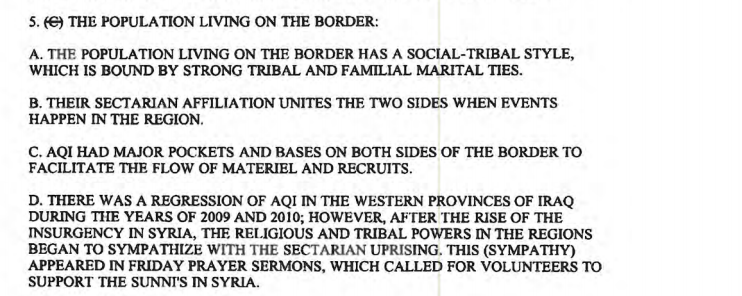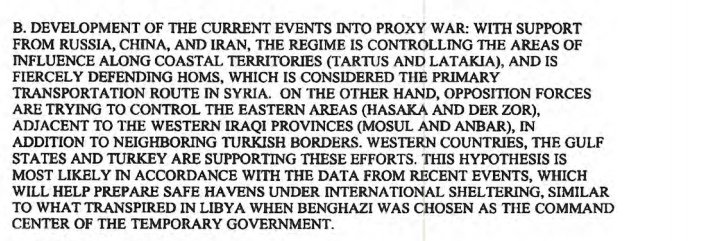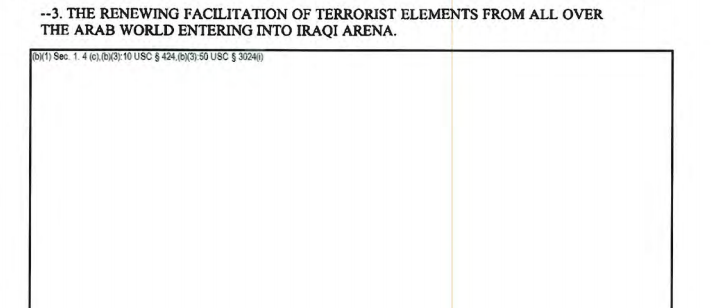Read this on my new website: http://www.kamkashem.com/2016/07/11/for-those-who-thought-iran-was-not-under-the-will-of-america/
﷽
There are many who believe Iran have held firmly against the tide of American dominance in the Middle East. They believe Iran to be an underdog who will soon compete on a global scale with America alongside Russia and China. They claim their will is independent and Islamic. It is now starkly clear that their hopes have been dashed and the reality has settled to whom Iran serves. This article hopes to highlight recent actions by Iran after the JCPOA and to whom these actions benefit the most.
The Joint Comprehensive Plan of Action (JCPOA)[1] is an agreement between Iran and US, UK, China, Germany and France to disarm Iran of any nuclear capability that could be used for military purposes. It is seen as one of Obama's biggest achievements.
It states under the JCPOA that:
Iran welcome this historic Joint Comprehensive Plan of Action (JCPOA), which will ensure that Iran’s nuclear programme will be exclusively peaceful, and mark a fundamental shift in their approach to this issue. They anticipate that full implementation of this JCPOA will positively contribute to regional and international peace and security. Iran reaffirms that under no circumstances will Iran ever seek, develop or acquire any nuclear weapons.
This cooperation between Washington and Tehran raised many eyebrows in Iran where the population have historically been anti-American. Many knew from the onset that a deal with America would never be favourable for Iran. In fact, Rouhani publicly praised the lifting of the sanctions [2] and regularly mentioned that Iran had the better deal out of the two, in order to quell any concerns from the Iranian public. Officials in the U.S. as well as the Israeli's were quick to notice this and hounded Obama for the first couple of weeks [3], suggesting that he hastened into a deal and that Iran would continue with their nuclear aspirations.
It's not about the nuclear weapons...
The world was duped into thinking the JCPOA is just about halting nuclear proliferation but they failed to understand the bigger picture behind the agreements. Yes, the JCPOA will indeed hamper Iran's nuclear capability and remove yet another Middle Eastern and more importantly Muslim country from the list of nuclear weapon holders, but the main purpose behind it is to relieve Iran economically and allow Her to follow America's demands subserviently, namely to become the face of Shi'itism in order to spread deathly sectarianism across the Muslim world, leading to the Muslims utter destruction and demise.
US Officials promised that they would hold Tehran accountable if they continued to support terrorism yet it was conveniently left out of the JCPOA dispute resolution mechanism as an action that could reintroduce the sanctions. John Kerry said:
"If we catch them funding terrorism, they're going to have a problem with the United States Congress and with other people, obviously." [4]
The Director of National Intelligence James Clapper said :
"Iran, the foremost state sponser of terrorism -- continues to exert its influence in regional crises in the Middle East through the International Revolutionary Guard Corps-Qods Force (IRGC-QF), its terrorist partner Lebanese Hezbollah, and proxy groups...Iran and Hezbollah remain a continuing terrorist threat to U.S. interests and partners worldwide." [5]
How does it benefit the West if Iran continue to support terrorist activities? And where is the proof that they are doing such?
Tehran has made it clear that they are supporting groups such as Palestinian Islamic Jihad and Hamas in Palestine. In the November report issued by Congressional Research Service "Iran has apparently sought to rebuild the relationship with Hamas by providing missile technology that Hamas used to construct its own rockets, and by helping it rebuild tunnels destroyed in the [2014] conflict with Israel." [6]
Counter air-strikes by "Israel" have frequently hit Hezbollah or IRGC (Islamic Revolutionary Guard Corps) members, such as IRGC Gen. Mohammad Ali Allahdadi in the January 2015 Mazraat Amal Incident. Last month, the group's secretary-general, Hassan Nasrallah, bluntly declared that "Hezbollah gets its money and arms from Iran, and as long as Iran has money, so does Hezbollah."[7]
As mentioned before, Iran's role as the Shi'ites protector and leader is to further sectarianism in the Muslim lands, and it is evident from their explicit support for the Houthi's in Yemen, Shi'ite militia's in Iraq and Syria, and Hezbollah in Lebanon.
It comes as no surprise when CENTCOM Chief Gen. Joseph Votel said
Iran has become "more aggressive in the days since the agreement". [8]
If Iran indeed had its own will then it would have turned the game plan of the U.S. upside down by supporting Palestine militarily and removing the occupation rather than meagre token gestures of underhand arms deals with Hamas and PIJ. As the Head of the Revolutionary Guards Aerospace Division Ali Hajizadeh said "Israel is surrounded by Islamic countries and it will not last long in a war" [9]. They would stop all funding of armed Shi'a militias that are going around slaughtering Muslims. They would disobey their masters in Washington and unite the Muslims under Islam and not an "infallible" spiritual leader.
This article featured on http://voiceoftheummah.com
[1] JCPOA - https://eeas.europa.eu/statements-eeas/docs/iran_agreement/iran_joint-comprehensive-plan-of-action_en.pdf [2] President Rouhani hails lifting of Iran sanctions - http://www.aljazeera.com/news/2016/01/president-rouhani-hails-lifting-iran-sanctions-160117104307664.html [3] A Bad Deal Off to a Worse Start - http://www.usnews.com/news/the-report/articles/2016-01-21/obamas-iran-nuclear-deal-is-a-bad-deal-off-to-a-worse-start [4] Iran's Support for Terrorism Under the JCPOA - http://www.washingtoninstitute.org/policy-analysis/view/irans-support-for-terrorism-under-the-jcpoa [5] Worldwide Threat Assessment of the US Intelligence Community - http://docs.house.gov/meetings/IG/IG00/20160225/104550/HHRG-114-IG00-Wstate-ClapperJ-20160225.pdf [6] CRS - Iran’s Foreign Policy - https://www.fas.org/sgp/crs/mideast/R44017.pdf [7] Terrorist Chief: ‘As Long as Iran Has Money, We Will Have Money’ - http://www.cnsnews.com/news/article/patrick-goodenough/hezbollah-chief-our-budget-income-weapons-all-come-iran [8] COMMITTEE ON ARMED SERVICES UNITED STATES SENATE - http://www.armed-services.senate.gov/imo/media/doc/16-26_3-09-16.pdf [9] Iran test fires missiles branded with words 'Israel must be wiped out' - http://www.telegraph.co.uk/news/worldnews/middleeast/iran/12188431/Iran-test-fires-missiles-branded-with-words-Israel-must-be-wiped-out.html








